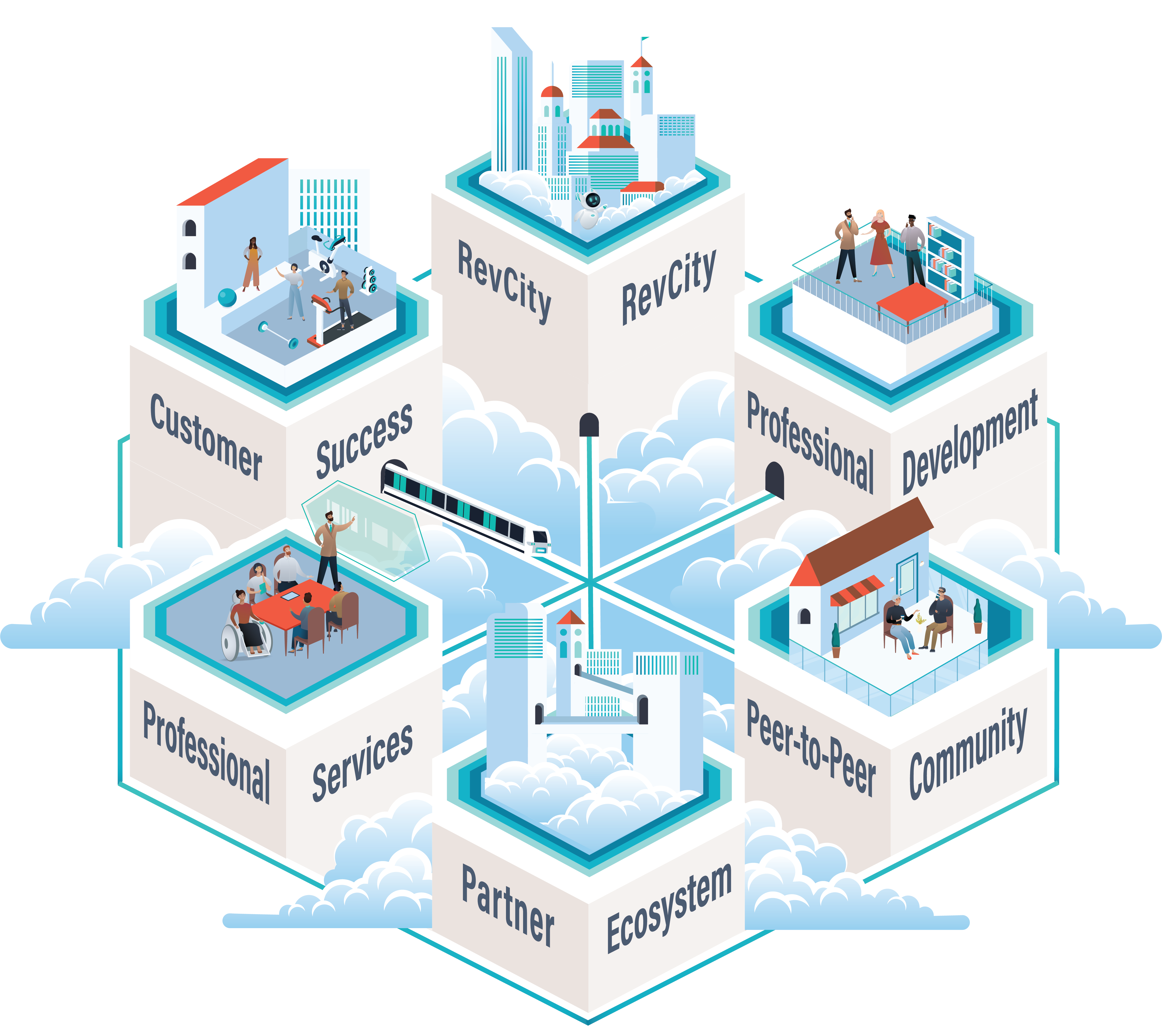B2B sales is changing, and that presents both challenges and opportunities. As artificial intelligence reshapes workflows and outreach strategies, sellers must balance advancements with the need for human connection and strategic thinking.
This evolution demands a reimagining of how sales teams build relationships, overcome obstacles, and deliver value to prospects. It’s up to sales leaders to coach BDRs and other sales reps on how to find balance in a role that is both extremely dependent on technology and data and extremely dependent on authentic communication and interaction with prospects.
On our Revenue Makers podcast series, sales leaders shed light on these complexities, offering actionable insights to navigate them effectively. Their perspectives reveal key themes that sales coaches should keep in mind, such as:
- Embracing AI as an enabler while fostering essential human connections
- Prioritizing trust and authenticity
- Equipping teams with the resilience and strategic mindsets needed to thrive in a dynamic market
Here are some of the key lessons in B2B sales coaching we’ve taken away from these industry experts.
Sales Development, AI, and a Bunch In-Between
In this episode of Revenue Makers, Sam Gong, SVP of Marketing at WorkSpan, discusses his career journey from marketing to sales and back again and how his experience earned him a unique perspective on the crucial role of the BDR in the sales and marketing ecosystems.
Not only do BDRs play a crucial role in aligning these departments, ensuring effective communication, and driving revenue growth — they’re also standing on the frontline of AI adoption in B2B sales. AI tools assist BDRs by:
- Identifying High-Value Prospects: AI can analyze large datasets to pinpoint prospects most likely to engage, saving time and increasing efficiency.
- Personalizing Outreach: AI enables more tailored and relevant communication, which helps BDRs stand out in crowded inboxes and improve response rates.
- Streamlining Workflows: By automating repetitive tasks, AI allows BDRs to focus on strategic activities that require human insight.
When coaching BDR and sales teams, be mindful of the need for continuous development and support for sales teams to adapt to technological advancements and changing market dynamics.
Avoiding the Five Sales Pitfalls That Prevent Long-Term Success
Chris Lee, Chief Revenue Officer of Interos, shares insights into common sales challenges and strategies to overcome them in this episode of Revenue Makers.
A seasoned veteran with experience at Zilliant, Salesforce, Siebel, and DocuSign, Chris is an expert in the less-discussed aspects of revenue leadership — mentorship, culture, and the human touch.
Key takeaways to incorporate into your sales coaching include:
- Mentorship and Positive Work Environment: These factors are crucial for new sales leaders aiming to foster a team that balances respect and camaraderie, driving better decisions and enhancing team dynamics.
- Personal Connections in Sales: People buy from people they trust and know. Building strong personal connections can greatly enhance B2B sales success, highlighting the need for sales professionals to connect with customers on a personal level.
- Learning from Failures: Failure is like solving a Rubik’s cube, where each setback is an opportunity for recalibration and eventual triumph. This mindset is essential for personal and professional growth in sales.
The Death of Outbound Sales Has Been Greatly Exaggerated
Gabrielle “GB” Blackwell, Senior Manager for Sales Development at Lattice, talks about the evolving landscape of outbound and sales development and shares her thoughts on the importance of clarifying strategy before investing in sales development.
Gabrielle’s insights on relationship-building, strategic thinking, and the human element in sales leadership are invaluable for sales coaching:
- Strategic Clarity Before Investment: It’s important to have a clear strategy before investing in sales development and aligning Business Development Representatives (BDRs) with specific account executives. This strategic alignment is crucial for effective sales coaching, as it ensures that coaching efforts are directed towards well-defined goals and objectives.
- Supporting the Entire Sales Team: Support the entire sales team, not just top performers. Effective sales coaching involves providing guidance and development opportunities to all team members, fostering a cohesive and efficient sales development team.
- Role of AI and Technology: AI acts as a force multiplier and accelerator in sales development, improving BDR metrics and pipeline generation. Understanding and leveraging AI and technology enables sales teams to be more effective and efficient.
Build Better: The Secret to High-Performing BDR Teams
Ernest Owusu, Head of Sales Development Transformation at 6sense, is an expert in building and leading successful Business Development Representative (BDR) teams. In this episode of Revenue Makers, Ernest shares how he recruits top talent and builds a team that consistently delivers.
He offers valuable career advice for aspiring BDRs looking to stand out from a crowded job market, which can be translated into insights sales leaders can use to coach their teams. Highlights from the podcast episode include:
- Essential Traits of Top-Performing BDRs: It’s important to hire BDRs who possess intrinsic motivation, curiosity, and resilience. These traits are crucial for success and can be nurtured through effective coaching strategies.
- Tailoring Leadership to Organizational Maturity: BDR leaders must adapt their coaching and management approaches based on the organization’s stage of development. This ensures that coaching methods align with the company’s evolving goals and challenges.
- Integrating AI into BDR Workflows: AI can enhance team efficiency by automating routine tasks and enabling personalized outreach. Understanding and adopting AI tools can be integral to developing a high-performing team.
Why Cold Calling Sucks and What to Do About It
Nick Cegelski, co-founder of 30 Minutes to President’s Club and co-author of Cold Calling Sucks, was a guest on Revenue Makers to share insights and advice for enhancing cold outreach effectiveness.
No one enjoys cold calls — not the seller making them, nor the prospect receiving them. But when done right, cold calls can be one of the most effective ways to build your sales pipeline.
Nick offers these tried-and-true strategies that can be integrated into sales coaching to improve sales teams’ cold calling skills:
- Targeting the Right Accounts: Emphasizing the importance of identifying and focusing on high-propensity accounts to increase the likelihood of successful outreach.
- Crafting Effective Openers: Advising on developing compelling opening statements that capture prospects’ attention and avoid sounding like generic telemarketing pitches.
- Avoiding Overused Buzzwords: Encouraging the elimination of clichéd language in favor of clear, value-driven communication that resonates with prospects.
- Framing Customer Problems: Highlighting the need to articulate prospects’ challenges vividly, positioning the sales approach as a tailored solution to their specific needs.



